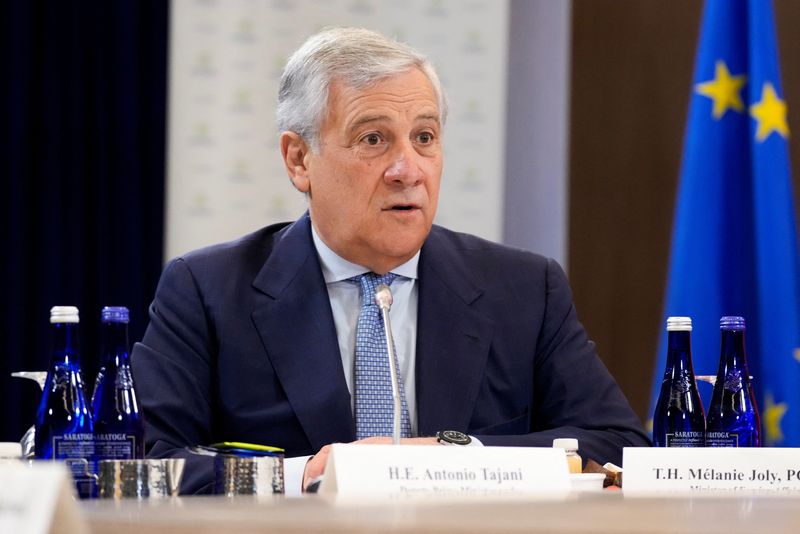By Giuseppe Fonte
ROME (Reuters) - The European Central Bank has overreached in pushing Italian bank UniCredit to get out of Russia, Italy's Foreign Minister Antonio Tajani said on Friday.
Euro-zone banks still involved with Russia more than two years after Moscow invaded Ukraine have come under growing pressure in recent weeks from the bloc's supervisors, as well as U.S. authorities, over their ties to the country.
The ECB has asked lenders under its watch to provide a "clear road map" to exit the Russian market.
"It seems to me the ECB has gone a bit too far," Tajani said at a news conference.
UniCredit said last week it was challenging terms set by the ECB for it to cut its exposure to Russia and seeking a ruling from the EU's General Court, as well as a freeze of the request until the court has ruled.
Decisions by the court take on average around 20 months, but a ruling on the suspension request should take only a few weeks.
The position of the Italian authorities appears disjointed.
Bank of Italy Governor Fabio Panetta said in May that Italian banks should "get out" of Russia due to reputational risks, while a source close to Prime Minister Giorgia Meloni told Reuters on Wednesday that Rome was playing no part in the matter.
UniCredit owns AO UniCredit, Russia's 15th-largest bank by assets, with 56 branches at the end of last year and a full-time staff of about 3,150 people.
Asked what the government's role was in the affair, Tajani defended UniCredit's decision to appeal to the European court.
"It's right for an Italian company that has been attacked to ask for judicial clarification at the EU level," he said, adding that Rome wanted to "protect Italian firms that operate in Russia within the rules imposed by sanctions."

"As foreign minister and deputy prime minister, I am saying that turning to an EU court means requesting clarification over rules that are not clear, it doesn't mean defying the ECB," he said.
"You can't ask these companies to suffer economic damage," Tajani added.